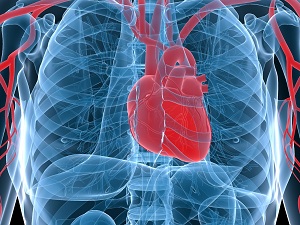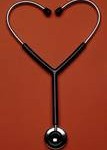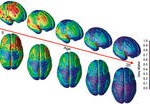 Improving our heart health is by far the most important thing that we can do to boost how we feel from day to day and extend our overall life expectancy. As we all know a healthy lifestyle of exercise, proper nutrition, and a wise use of supplements is the key to our overall health, but where do we start? I like to start with what’s natural and that’s where CoQ10 comes into play. Read more
Improving our heart health is by far the most important thing that we can do to boost how we feel from day to day and extend our overall life expectancy. As we all know a healthy lifestyle of exercise, proper nutrition, and a wise use of supplements is the key to our overall health, but where do we start? I like to start with what’s natural and that’s where CoQ10 comes into play. Read more
Archive for Cardiovascular Health
CoQ10 May Have Significant Heart Benefits
Vitamin C Helps Protect Your Heart and Digestive Tract

A recent study by Arizona State University has found that daily supplements of vitamin C can have serious benefits when it comes to exercise. Researchers found that adults taking a daily supplement of 500 mg of vitamin C have an average of 11 fewer heart beats during exercise. A reduced heart rate isn’t just about putting less stress on the heart, it allows you to have more stamina because you were not exerting as much effort and therefore have less fatigue than an average person.
Can Magnesium Lower Your Risk of Fatal Heart Disease?

Researchers in Japan have found that high intakes of magnesium can reduce your cardiovascular fatality rate by up to 50%. The almost 15 year study focusing on more than 58,000 Japanese people aged between 40 and 79 found that increasing your dietary magnesium intake can also severely lower your risk of stroke and coronary heart disease. Read more
Two Cups of Coffee Support a Healthy Heart

While many of us need a cup of coffee first thing in the morning just to function, your daily coffee routine may be helping protect your heart as well. A new study of five trials that looked at over 140,000 patients has found that consuming two cups of coffee each day lowers your risk of heart failure by 11% compared with someone who doesn’t drink any coffee. Slow down though, more than four cups a day can have the opposite effect and damage your heart. Read more
Two Cups of Coffee Support a Healthy Heart

While many of us need a cup of coffee first thing in the morning just to function, your daily coffee routine may be helping protect your heart as well. A new study of five trials that looked at over 140,000 patients has found that consuming two cups of coffee each day lowers your risk of heart failure by 11% compared with someone who doesn’t drink any coffee. Slow down though, more than four cups a day can have the opposite effect and damage your heart. Read more
Vitamin D Intake Linked to Lowered Risk of Fatal Heart Disease

A new study published in the most recent edition of Diabetes Care has found that maintaining optimal level of vitamin D can severely reduce the risk of fatal heart disease. We have long known of Vitamin D’s benefits when it comes to bone health, preventing various types of cancer, and preventing rickets. This new research now shows that Vitamin D can even reduce your heart disease mortality risk by 66% to 75%.
The crucial term here is “optimal” Vitamin D intake. While the vitamin D a nutrient that humans can get from sunlight, many American adults have a severe deficiency. Since most Americans can’t produce enough vitamin D from the sunlight and diet alone, many doctors recommend supplementing your diet with vitamin D capsules.
The study focused on 1,800 people with metabolic syndrome, also known as MetS, for nearly eight years. MetS is associated with obesity, hypertension, and poor glucose and insulin metabolism. In the United States, 32% of adults are affected by metabolic syndrome. Researchers found that people with optimal levels of Vitamin D had a 66% lower chance of dying from cardiovascular disease and a 75% lower chance of dying from all causes over the course of the study.
Researchers attribute this link to better regulation of blood sugar, anti-inflammatory effects, and a better metabolism. At the same time, Vitamin D deficiency can lead to rickets, osteoporosis, muscle weakness, poor bone health, common cancers, auto-immune disease, and heart disease.
It’s hard for someone to gauge their blood levels of Vitamin D, especially since we get much of it from the sun. Many Americans have a vitamin D deficiency, particularly during the winter months. This is why it is important for many people take the right kind of vitamin D supplements regularly.
Omega-3: New Science Finds Multiple Health Benefits

According to two studies recently published in the American Journal of Clinical Nutrition, supplementing with omega-3 fatty acids may have anti-inflammation and cancer prevention benefits, as well proving beneficial for the heart.
In the first study performed at the Jilin University of China, tests showed that omega-3 supplements reduced the occurrence of a potentially damaging molecule called “sICAM-1” or “soluble intercellular adhesion molecule.” Reducing the amount of this element that circulates within your body can decrease your risk of atherosclerosis and other conditions that break down your cells.
Even more interesting was the evidence found in the second study. In this study from the National Institute of Health and Medical Research in Paris, it was found that supplementing your diet with omega-3 is a good idea when you want to fight back against the cancer-promoting qualities of “sICAM-1.”
The second study examined 408 cancer-stricken individuals and compared their stats against a control group of 760 healthy individuals. There was clearly a correlation between omega-3 levels and sICAM levels. Remarkably, there was no association between cancer and subjects with a higher intake of omega 3.
Researchers state that there are two primary ways that omega-3s might fight back against the risk of cancer. The first is by reducing the ability for adhesion molecules like sICAM-1 to express itself. The second is by disrupting the actual cancer-promoting pathway that ICAM stimulates.
So how much omega-3 should you be taking in supplement form? According to the University of Maryland Medical Center, you should not take more than about 3g per day in supplement form. The American Heart Association recommends taking between 1 and 3 g of omega-3 depending on the person’s age and health profile. Children younger than 18 years old should not take omega-3 supplements without doctor supervision.
Study Finds Omega-3 May Lower Alzheimer’s Risk

We have all heard of the countless benefits of consuming foods with omega-3, now you can add another big one: reduced risk of Alzheimer’s disease. According to a new study by Columbia University’s Dr. Nikolaos Scarmeas, consuming high levels of omega-3 fatty acids lower your levels of a protein called beta-amyloid which is a major player in developing memory problems and Alzheimer’s. In fact, higher levels of omega-3 each day can lower your blood beta-amyloid levels by as much as 20-30%!
Researchers have suspected a link between omega-3 and decreased memory loss risks for a long time, this study, which was recently published in Neurology, is a major breakthrough for doctors studying the development of Alzheimer’s. The study looked at over 1,200 people over the age of 65 and more than 10 different nutrients. Those with particularly high levels of omega-3 intake had 20-30% lower levels of beta-amyloid than people with an average intake of omega-3 fatty acids.
This study focused on the blood but more research remains to be done on how the levels of beta-amyloid in the blood actually affect the levels in the brain. Testing blood levels is a fairly simple thing for any researcher to do, testing brain levels is not – but it is a necessary step in figuring out exactly how much omega-3 fatty acids actually affect your chances of developing memory problems and Alzheimer’s.
Omega-3 fatty acids have long been considered highly beneficial for a bevy of physical elements. The acids have been shown to help prevent cancer, improve blood circulation, reduce the risk of heart attack and other cardiovascular problems, prevent inflammation, and improve neurological function. Unfortunately, most Americans don’t get the recommended amount from diet alone and certainly don’t come close to the high levels of omega-3 needed to lower your beta-amyloid levels. Even adding more fish and other omega-3 containing foods like eggs and nuts may not be enough which is why you may want to consider supplementing your diet with krill oil capsules for the best results.
Eating Too Much OR Too Little Increases Stroke Risk

A new review in the January issue of The Lancet Neurology finds that being either over or under nourished can increase the odds of a stroke.
However some of the claims made in the study are a bit harder to accept, especially in the face of evidence to the contrary. Read more
Help Your Heart With Cocoa!

Let’s be honest, most of us love chocolate! Women crave it, men hoard it, and in Aztec times, kings were the first to have reportedly consumed it. Living to be a ripe old age of 122, the oldest woman who ever lived, Jeanne Calment, was even reported to eat two pounds of chocolate weekly! We know why we love it, but here are some reasons why we should not give it up completely. Chocolate really is good for our hearts! Read more

